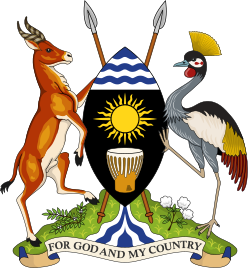 |
|---|
General elections were held in Uganda between 20 and 24 October 1958. [1] They were the first elections to the Legislative Council, and were boycotted by the Ganda. The result was a victory for the Uganda National Congress, which won five of the ten seats. [2]